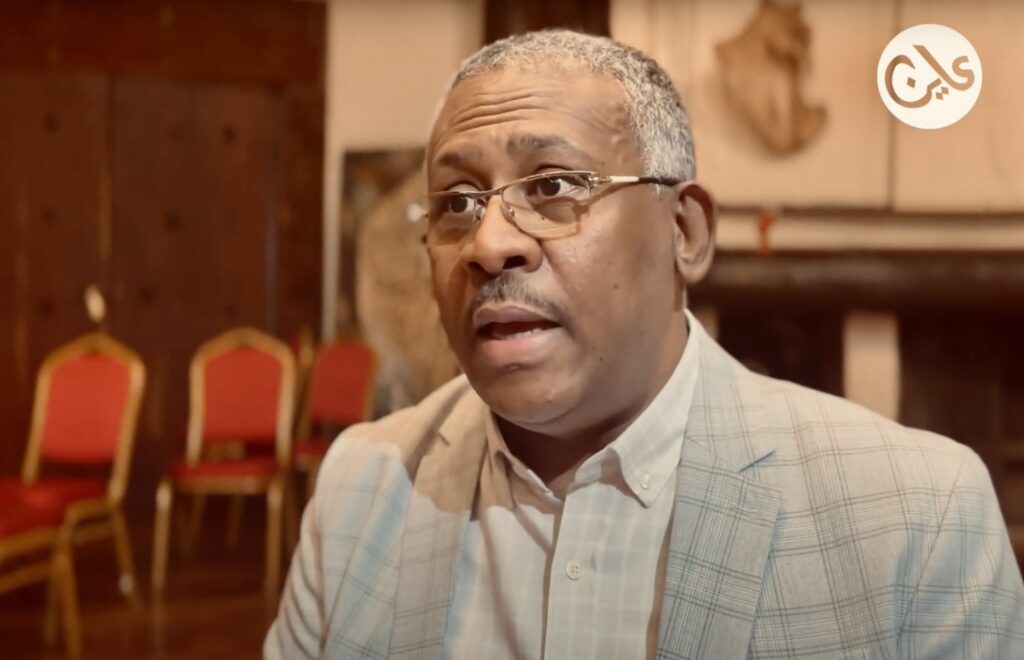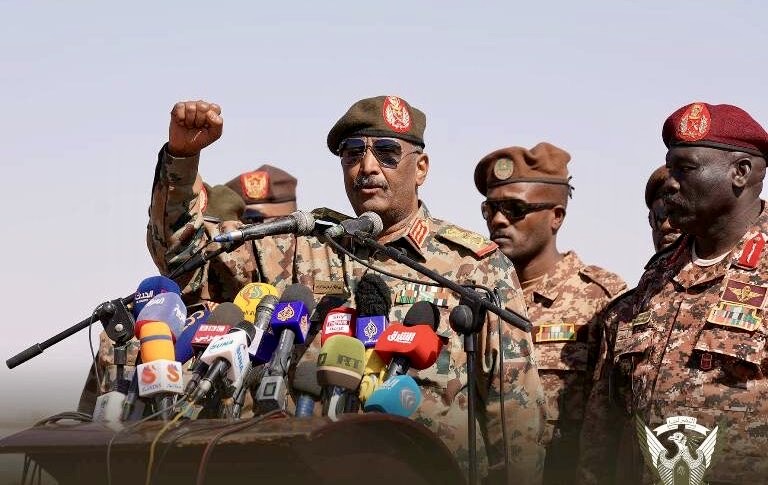Taqaddum: The split explained by political leader Babiker Faisal
12 February 2025
The civilian coalition set up to try and end the war, Taqaddum (meaning “progress”), has now split into two factions. One group supports the idea of an ostensibly civilian-led government operating within the Rapid Support Forces (RSF) controlled areas, the other rejects this idea. The former believes a new government within the RSF-controlled areas will provide a voice for these people, while the latter fear such support would divide the country further. At the same time, army leader Lt.-Gen. Abdelfattah al-Burhan recently laid out conditions for peace with Taqaddum, demanding they renounce the Rapid Support Forces (RSF).
To help our readers develop a better understanding of these development, Ayin had the opportunity to speak to Babiker Faisal, a prominent member of the coalition and Head of the Executive Bureau of the Unionist Alliance.

Why has Taqaddum spit into two factions?
The split took place because a group from the revolutionary forces and elements from civil society thought that the only way to de-legitimise the army-controlled Port Sudan government is to form a parallel government that could serve the people on the ground in the RSF-controlled areas. They think that a large part of the population have been deprived of their basic rights – such as ID documents, passports, and the high school examinations. Many students from the Darfur region could not attend these examinations. In addition, the Port Sudan government under the army’s control is using a different currency. So they said they wanted to serve the people – by forming a separate government. In my opinion, those who wish to establish a government in the RSF-controlled areas are also under pressure from their constituents within Darfur to push for this representation.
Do you support this idea personally?
We rejected the idea, almost 95% of Taqaddum opposed this idea. This rejection represents the views of the majority of political parties, trade unions, and the resistance committees. We feel this would put the country on the path of division and disintegration. Further, as the war the continues, the international community would have to deal with two separate governments – this would include any humanitarian operations.
This would also, in my opinion, weaken the role of civilians in any future negotiations since both warring parties would claim to be represented by civilian governments. Civiilans will, once again, be sidelined, Sudanese people would be used as pawns for the warring parties’ agendas. It would be a similar scenario as we have seen in Libya.
What happens now? Will you still be able to collaborate as two separate groups formerly under the Taqaddum umbrella?
We decided to make an amicable divorce, we do not want to get into conflict with them. Now we are working on how to build an alliance and called on a meeting within the leadership council to see how to re-structure. We are also trying to see how to build a broader civilian front, calling for peace. We will work with anyone who genuinely supports and calls for the protection of civilians and greater humanitarian access. We are going to meet and restructure and go forward and develop a broad civilian front.
Do you see this divide within Taqaddum as a major setback?
It is not a major setback – we reached a point where we as civilians have been forced to choose our decision between unity and separation. Also, elements of the former regime, the National Congress Party, have always accused us [Taqaddum] of being the political wing of the RSF. Now this division will clarify our position – from now on we will not be accused of supporting either warring party – we will be on the side of the civilian people. This, I hope, will encourage more people to join our alliance. Those who were suspicious of our position before will see us as who we truly claim to be.
Will you maintain the name Taqaddum or should we expect a new name for the two alliances?
We have agreed upon the name: The Civil Democratic Alliance of the Revolutionary Forces or SOMOUD, which means “resilience” in Arabic. We are still waiting for the name that will represent the other side that supports a civilian government within the RSF-controlled areas.
Do you fear, especially with this division within Taqaddum, we will see Sudan split into two countries?
Unfortunately yes. Because there are too many signs that the country is sliding into division. The social fabric has been destroyed, the hate speech, the attrocities committed by both sides –now all these signs unfortunately tell that the country – if the war does not stop immediately – will lead to this path. We had the experience of South Sudan. We just waited as South Sudan seceded because we lost any opportunity to stop the war. I can see this now being repeated by both sides in the current war. The ultimate priority should be to stop the war, not the formation of government.

What do you make of army leader Lt.-Gen. Abdelfattah al-Burhan’s remarks last Saturday, inviting former Taqaddum members back into Port Sudan, after previously denouncing the movment, and warning the former Islamist regime not to re-take power?
Burhan speaks as if the army won a decisive victory. The reality is that the war is still ongoing, and there are no signs that it will stop soon. We have consistently asserted that it will only end at the negotiating table.
It’s all about power [Burhan’s remarks], it’s not about the people of Sudan. He fears Islamists and members of the former regime, the NCP, will not support him in the future. They will ultimately get rid of him and he does not want that. He wants to send a message to them [the NCP] that his enemies, members of the Taqaddum, are ready to join a new transitional government with him. He is just trying to use us for his own political purposes.


